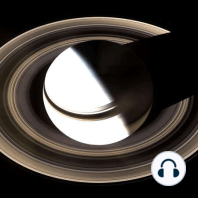74 min listen

A Planet for Goldilocks: Kepler and the Search for Living Worlds
A Planet for Goldilocks: Kepler and the Search for Living Worlds
ratings:
Length:
89 minutes
Released:
Oct 30, 2022
Format:
Podcast episode
Description
With Dr. Natalie Batalha (NASA, Kepler Mission Project Scientist)NASA's Kepler Mission launched in 2009 with the objective of finding "Goldilocks planets" orbiting other stars like our Sun -- those that are not too hot, not too cold, but just right. The space telescope opened our eyes to the many terrestrial-sized planets that populate the galaxy (including several right in our neighborhood,) as well as to exotic worlds unlike anything that exists in the solar system. Dr. Batalha gives an overview of the science legacy of the Kepler Mission and other key planet discoveries (including some results that were then only a few weeks old). She also gives a preview of planet-finding missions to come. Recorded Nov. 8, 2017
Released:
Oct 30, 2022
Format:
Podcast episode
Titles in the series (45)
Will the 21st Century be the Time we Discover Life Beyond Earth (with Dr. Jill Tarter) by Silicon Valley Astronomy Lectures